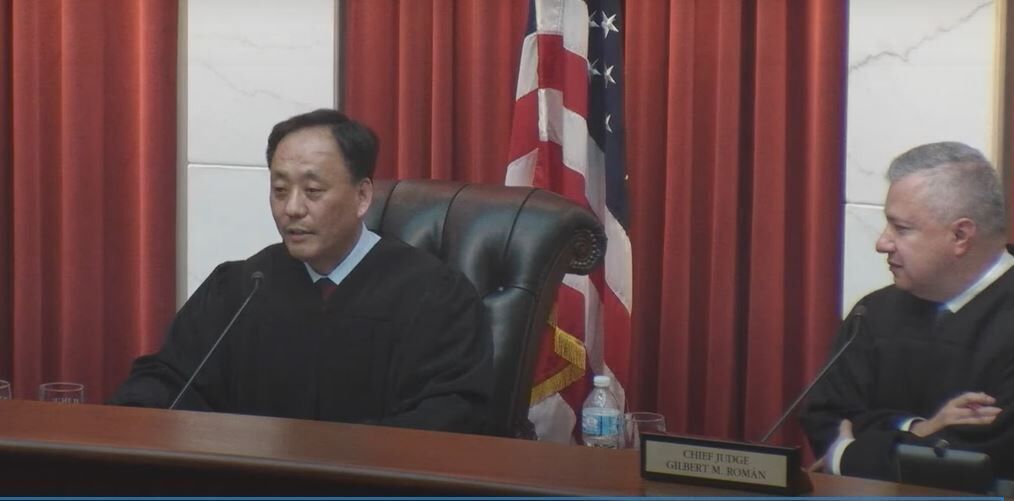10th Circuit: Archuleta sheriff’s officials committed constitutional violation by seizing home for 8 hours
An Archuleta County sheriff’s detective who barred a man and his family from entering their home for nearly eight hours without a warrant committed a constitutional violation that required the eventual evidence of a firearm offense to be thrown out, the federal appeals court based in Denver ruled on Tuesday.
Although Corban Josiah Elmore cooperated with first responders who assisted with his son’s drug overdose, Detective Patrick Smith asked other sheriff’s deputies to secure Elmore’s home. For several hours, Smith investigated Elmore for a potential crime while Elmore, his wife and their other child were kept out of the house.
A trial judge initially believed Smith’s seizure of Elmore’s home was constitutional at the outset and the detective reasonably — if slowly — spent the next eight hours in pursuit of a search warrant. But a three-judge panel of the U.S. Court of Appeals for the 10th Circuit saw things differently, concluding that even if there was probable cause to restrict access to the home at the time of Smith’s command, the warrant should have arrived promptly.
“Yet before applying for a warrant, Smith spent hours digging into the details surrounding the overdose event and investigating Elmore for criminal conduct. By doing so, Smith extended the seizure much longer than reasonably necessary to obtain the warrant,” wrote Judge Nancy L. Moritz in the panel’s May 21 opinion.
The Fourth Amendment prohibits unreasonable searches and seizures. It further requires law enforcement to either obtain a warrant based on probable cause or else rely on an exception to the warrant requirement. If police act without a warrant, the U.S. Supreme Court has cautioned that the seizure should be “no longer than reasonably necessary.“
A ‘possible crime scene’
The morning of April 6, 2021, Elmore found his teenage son nonresponsive in the basement of their home in rural Archuleta County. Elmore retrieved his nearby tenant, who attempted to resuscitate the son. The tenant left to call 911 while Elmore moved his son outside. First responders administered medication to counteract the suspected drug overdose and the son began breathing.
An emergency medical technician asked Elmore if he knew what drugs his son had taken. Elmore showed the EMT to his son’s bedroom and handed over a box of various illicit substances and paraphernalia.
Around 11:30, with Elmore’s son at the hospital, sheriff’s deputies arrived at the home and Smith showed up shortly afterward. He spoke with the tenant, told the deputies to “secure” the property and left for the hospital.

An open bottle of painkiller tablets in the opioid class of drugs.
Smith contacted Elmore over the phone and they arranged to meet back at Elmore’s house. Smith returned first and Elmore’s wife arrived with their young child. She asked to go into the home to take care of the numerous pets and to rest her foot, which she recently injured.
The deputies refused, saying the house was a “crime scene.” Smith elaborated he needed to “look for whatever else might be in there drug related.” Elmore’s wife offered to let law enforcement search the downstairs bedroom, but they declined.
By the time Elmore returned, Smith was gone and the remaining deputies reiterated they were “holding the scene” as a “possible crime scene.” Again, Elmore said law enforcement could search the bedroom, but they refused to let him enter. Elmore then left.
The deputies at the home looked inside and observed an alleged gun safe and gun carrier. They told Smith, who looked up Elmore and found him to have prior felony convictions. Around 7:30 p.m., nearly eight hours after telling deputies to block entry to Elmore’s home, Smith applied for a search warrant.
Law enforcement subsequently found multiple guns and charged Elmore with being a felon in possession of firearms.
Initially, Elmore argued the seizure of his home was a Fourth Amendment violation and any evidence after that point could not be used against him. U.S. Magistrate Judge James M. Candelaria sided with Elmore, noting Good Samaritans who report drug overdoses are immune from prosecution under Colorado law. Because law enforcement had no probable cause for anything but drug possession, the seizure was unjustified.
The government objected, prompting U.S. District Court Senior Judge Robert E. Blackburn to overrule Candelaria, noting Colorado immunity did not apply to federal drug crimes. Because Smith had probable cause of a drug offense and a reasonable fear Elmore’s family might destroy the evidence if allowed in the house, he deemed the seizure reasonable.
The eight-hour gap “might have been used more efficiently,” Blackburn conceded. But there was “no indication that Detective Smith or other officers purposefully delayed their efforts to obtain a warrant.”

FILE PHOTO: The Alfred A. Arraj federal courthouse in Denver
An unreasonable delay
Elmore appealed to the 10th Circuit, arguing his actions in response to the overdose — including voluntarily handing over the drugs — undermined the idea he was intent on destroying evidence.
Assistant U.S. Attorney Marissa R. Miller countered that in addition to the possibility of more drugs, “I think that we frequently worry about firearms in drug cases.”
“I can see a very lenient magistrate judge saying ‘OK, you can search the kid’s bedroom for firearms,'” said Judge Robert E. Bacharach during oral arguments at the 10th Circuit. “But how in the world do you convince any magistrate judge in the United States to look at the dad’s bedroom for firearms?”
The 10th Circuit panel ruled in Elmore’s favor, noting sheriff’s officials lacked any reason to suspect Elmore of a firearm crime at the moment they seized his house. The seizure, elaborated Moritz, enabled police to eventually develop the evidence Smith would later use in the warrant application. But for eight hours, Elmore’s family was denied access to their house without a warrant.
Police “exploited the seizure for hours to conduct additional investigation,” she wrote. “Even assuming probable cause and exigency supported the initial seizure of Elmore’s home, that seizure became unreasonable when the officers made no effort to reconcile the competing interests at stake and extended the seizure longer than reasonably necessary to diligently obtain a search warrant.”
The court barred the government from using the firearm evidence against Elmore. The Archuleta County sheriff did not immediately respond to an email asking about the decision.
The case is United States v. Elmore.











